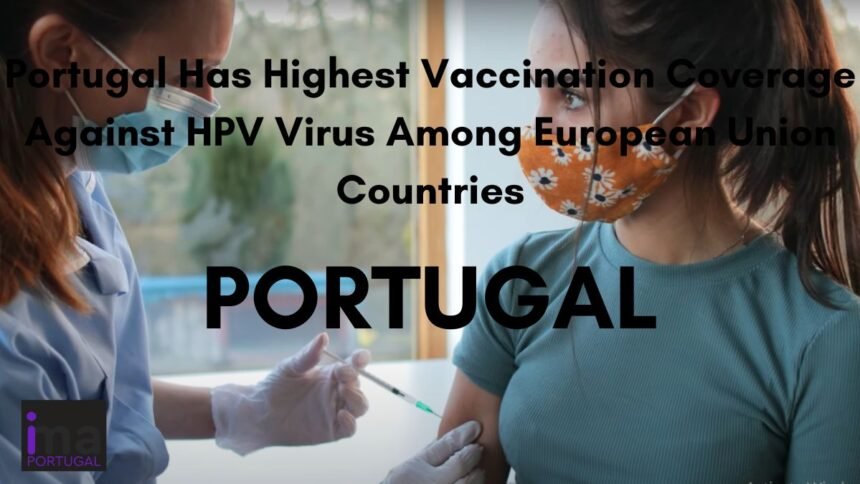A report from the Organization for Economic Co-operation and Development (OECD) stated that Portugal has the highest vaccination coverage for the HPV virus symptoms. It stands at the number one spot among all the European Union countries.
Portugal Has Highest Vaccination Against HPV
Organization for Economic Co-operation and Development (OECD) has conducted a vaccination study among the European Union Countries. According to this study, Portugal is currently at first for possessing the highest number of vaccinations for human papillomavirus (HPV). The report also suggested that the country stands at the second spot for vaccination against measles and hepatitis B.
The recommended coverage for HPV doses for girls aged 15 years or less is 91% in Portugal as of last year. The average of the countries of the European Union is 64% and Portugal is currently above the average. According to the statistics, 88% of children in the European Union countries received both doses of measles vaccines. Only 2 countries were able to achieve 95% coverage for the population against disease outbreaks. One of them was Portugal and the other one was Hungary. A statement from the study reads as follows:
In 2023, on average, 64% of girls in the EU received all recommended doses of HPV vaccine by the age of 15, ranging from 91% in Portugal to 7% in Bulgaria.
Portugal Reached Hepatitis B Goal
According to the report of OECD, most of the countries did not achieve the 95% goal of three doses of the hepatitis B vaccine. However, Portugal did achieve this goal that exceeded this goal. The statistics show that in 2021, around 860,000 deaths out of 1.26 million deaths in the European Union could have been avoided through vaccinations and prevention.
The major 4 leading causes of mortality that can be avoided are lung cancer, alcohol-related deaths, COVID-19, and ischaemic heart disease. These four deaths combine up to 56% of all the avoidable deaths in the world. Some of the other diseases that can be avoided are chronic obstructive pulmonary disease (COPD), strokes, and suicide.
In 2021, around 5.3 million people died in all the European Union countries. This was 100,000 deaths, more deaths recorded than that of the previous year 2020. There were also 600,000 more deaths than that of the year 2019. The main reason for more deaths in the year 2021 was due to COVID-19.
Life Expectancy Increased
Although the pandemic has caused a lot of deaths in the previous year, life expectancy has still increased in the European Union. Life expectancy reached 81.5 years in the year 2023. This marks an increase of 4 years compared with the year 2000. Another milestone was acknowledged in the report that life expectancy for people aged 65 has been highest.

19 European Union countries were chosen to study whether the citizens trust their government to protect the people. In these 19 countries, more than half of the people have full confidence in their respective government officials in case of a health emergency. Only 31% of the people stated that they do not have confidence in their government. During a health crisis, public confidence in the top 3 countries can be seen as follows:
- Finland (82%)
- Netherlands (68%)
- Denmark (66%)
Portugal’s public has low confidence in their government as 33% of the citizens who were interviewed stated that they have confidence in their respective government. The OECD states:
These large differences in trust levels can be attributed to several factors, including historical performance in crisis management, the strength of social welfare systems, satisfaction with key public services, assessments of a country’s resource, and cultural predisposition to trust institutions in general.
Read More About: Pinker: New Women-Only Taxi Service In Portugal










